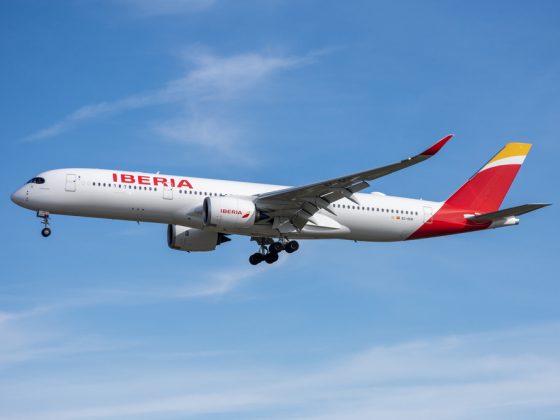A decade ago, a trio of nimble fintech upstarts — Starling, Monzo, and Revolut — charged into the British banking scene with bold ambitions.
Their mission: to reimagine financial services through cutting-edge technology, superior customer experience, and sleek mobile interfaces.
Early success was meteoric. Customer bases swelled. Market share climbed. The three neobanks captured the imagination of investors and users alike, riding a wave of digital-first enthusiasm that promised to disrupt centuries-old banking norms.
Yet now, their paths are splitting.
Revolut and Monzo are enjoying record growth. Starling, once hailed as a poster child of British fintech, finds itself grappling with a brutal financial and reputational reckoning.
Starling’s stumble amid regulatory woes
Starling’s annual results revealed a sharp decline in profitability, with post-tax profit falling to £223 million in 2024 from £301 million the previous year.
The drop was driven by surging operating costs, which climbed to £403 million from £332 million, dwarfing its modest revenue increase of £32 million to £714 million.
The firm’s slide came to a head after the Financial Conduct Authority (FCA) handed it a £29 million penalty for serious failings in its financial crime controls.
Between September 2021 and November 2022, Starling opened over 54,000 accounts for 49,000 “high-risk” customers without keeping up with necessary compliance processes.
“The measures in place to tackle financial crime did not keep pace with the growth of the bank,” said the FCA, describing the failings as “shockingly lax”.
Starling was also forced to absorb potential losses from loans issued under the government’s Bounce Back Loan Scheme (BBLS), setting aside a £28.2 million provision.
The loans, designed to support small businesses during the pandemic, failed to meet the criteria necessary for the government’s guarantee.
Rather than seek taxpayer reimbursement, Starling removed the guarantee and shouldered the risk.
David Sproul, chair of Starling’s board, said the company had “resolved some important legacy matters” but acknowledged the weight of the issues faced over the past year.
Internal unrest and fading momentum
Starling’s internal turbulence has not been confined to its balance sheet.
The company has faced staff unrest following new chief executive Raman Bhatia’s directive requiring workers to return to offices at least ten days a month — despite reportedly lacking the space to accommodate them.
The policy, which came after Bhatia took over in 2024, led to a wave of staff departures.
Meanwhile, the customer growth that once defined Starling’s rise has slowed. The number of accounts rose by just 10% to 4.6 million — half the rate of the previous year.
In contrast, Monzo’s customer numbers surged 31% to 9.7 million in 2024, with deposits climbing 88% to £11.2 billion.
An annual report is expected soon, but the neobank is already drawing attention for another reason: a planned £6 billion listing on the London Stock Exchange, marking one of the UK’s most anticipated IPOs of the year.
Revolut hits profitability milestone
Revolut, once the most controversial of the trio, has emerged as the biggest winner in recent months.
The company not only surpassed 50 million customers globally but also posted more than £1 billion in profit this year — a staggering milestone for a firm that has long battled regulatory delays and governance questions.
The achievement puts it ahead of even HSBC in terms of customer numbers, highlighting the dramatic shifts underway in the banking landscape.
Revolut’s international expansion, aggressive product launches, and diversified revenue streams have helped it defy many of the scaling challenges plaguing rivals.
Can Starling’s Engine restart growth?
Faced with these challenges, Starling is now betting on Engine, its software-as-a-service (SaaS) subsidiary, to turn the tide.
Although Engine contributed just £8.7 million to group income in the last financial year, this represented a 284% jump.
The firm has now set its sights on the United States, with Bhatia describing North America as a “huge opportunity” and targeting revenues of £100 million in the medium term.
John Cronin, founder of Seapoint Insights, questioned whether Engine alone could save Starling’s wider business model.
“Starling has no choice but to move up the risk curve – and this isn’t something we learned today or yesterday either,” she said in a City AM report.
“Its limited scale and consequent lack of operating leverage, high risk weights (standardised credit risk modelling) and relatively higher deposit funding costs mean it just cannot compete with mainstream banks. But that cuts to the heart of the business model – what competitive advantages does Starling have?”
Starling’s service quality still highly ranked
Despite the divergence in performance, the popularity of digital-only banks continues to climb, and Starling, along with Monzo, was ranked highest for overdraft services in an independent survey, while First Direct rounded out the top five in all categories.
The survey conducted as part of regulatory obligations also placed Chase, Starling, and Monzo in the top three for overall service quality, ahead of legacy players like Lloyds, Barclays, HSBC, and Santander.
According to research from Finder.com published by The Sun in March, 40% of UK adults now have a digital-only bank account — up from 36% in 2024 and 24% in 2023.
A further 17% of respondents who don’t yet have one said they intend to open an account, including 7% within the next year.
Trustpilot scores show high levels of satisfaction among users, with Starling, Monzo, Revolut, and JPMorgan’s Chase all earning over 4 out of 5 stars.
Mobile app ratings across iOS and Android average over 4.8 stars.
The post UK’s digital banks face divergent fortunes: Starling stumbles, Monzo and Revolut soars appeared first on Invezz


